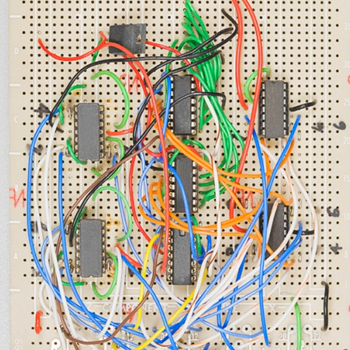How do you solve #4^(2x-5)=32#?
2 Answers
Real solution
Complex solutions
Explanation:
Note that
So we have:
#2^(4x-10) = (2^2)^(2x-5) = 4^(2x-5) = 32 = 2^5#
The function
Hence the only real solution is given by:
#4x-10 = 5#
Hence:
#x = 15/4#
If we are interested in other complex solutions, note that:
#2^((2kpii)/ln 2) = e^(2kpii) = (e^(2pii))^k = 1^k = 1" "# for any integer#k#
Hence the given equation has solutions given by:
#4x-10 = 5+(2kpii)/ln 2#
Hence:
#x = 15/4+(kpi)/(2 ln 2) i#
Explanation:
In order to solve, you can manipulate the bases of the exponents to find a value for x.
In this question, you can manipulate the base of 4 to be
Now that the bases equivalent, you can take a logarithm with a base of 2 to both sides of the equation to cancel out the exponents.
Now, just solve like a normal algebraic equation.


